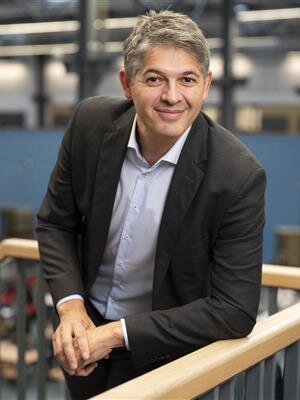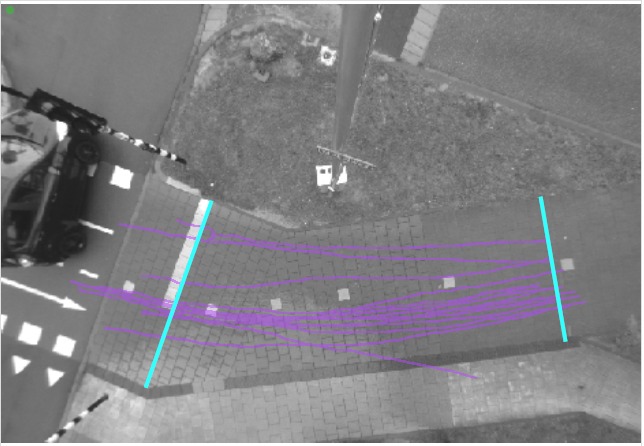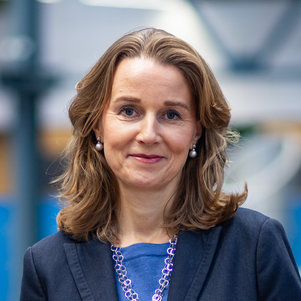Campus as a Living Lab
Important research role for IDE in the 1.5 metre campus
20 scientists from four faculties are setting up scientific research within a new TU Delft project: ‘Campus as a Living Lab’, all in support of facilitating the 1.5 metre campus and student wellbeing.
The Faculty of Industrial Design Engineering is playing an important role in this project, with Gerd Kortuem, professor of Internet of Things and Alessandro Bozzon, professor of Human-Centered Artificial Intelligence, leading two of the research packages and Professor Deborah Nas acting as the overall project lead. The IDE building is also used to pilot different technologies and research the accuracy of different data sources.
As we all know, social distancing means we can only host a limited number of people in the faculty. But how do we keep track of the total number of people present? Everyone is required to scan their campus card entering and exiting the building but not everyone will. Counting sensors can be used at access points but this is not 100% accurate. WiFi data can be used to measure how many devices are connected to WiFi, but how many devices do people carry around with them? By combining these data sources, researchers will establish a baseline which will help calculate the number of people in any building on campus using WiFi data alone.
Another interesting research topic is how people queue and move around when entering or exiting a building. To gain these insights, researchers from CiTG have installed a sensor at IDE’s entrance. This intelligent sensor translates visual information to data, to show where people stand and how they move. No video images are exported from this sensor, so your privacy is secure. This goes for all research within ‘Campus as a Living Lab’ project which has adopted privacy-by-design guidelines. You can read more here.
More research will be taking place at IDE in the coming months, allowing us to contribute to new scientific insights on people, mobility and behaviour. More to come!
If you would like to find out more about this project or would like to be involved in this research, please get in touch with the IDE researchers, who would welcome your input.
Gerd Kortuem
Available on: Mon-Tue-Wed-Thu-Fri

Alessandro Bozzon
- +31 (0)15 27 87822
- a.bozzon@tudelft.nl
- Personal website
-
Room B-3-370
Working days: M T W T F
"Twenty years from now you will be more disappointed by the things you didn't do than by the ones you did do."

